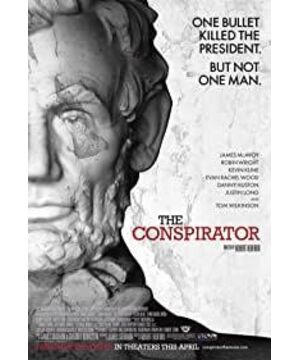As the United States was in turmoil at the time, the North, which had just taken power, was not firmly seated. Although the South lost the war, there were still many small fights. This time, it was a bit bigger, and a shot broke Lincoln's head. If the North did not punish with an iron fist, there might be a stronger rebellion in the South. From this point of view, it is reasonable for the government to blindly want to execute these suspects. Indeed, if this country no longer exists, then there will be no constitution and no independence and freedom.
On the other hand, in order to achieve the goal of stabilizing the country, the then northern government committed violations of the rights of the people, that is, the military tried the case of a female accomplice without a jury. The judge was not fair. , the result will naturally not be. Therefore, no matter how strong the lawyer makes a strong defense and how much evidence is presented, the outcome will still not change. But what the lawyer said is right, if the rights of the people are not guaranteed, who will support this country?
Northerners feel that southerners have killed many of their compatriots in battle, but why don't southerners think so? Plus they lost the war. There is nothing wrong with them hating the northern regime, it is just from the standpoint of their interests that the North is their enemy.
Therefore, it is actually a matter of perspective. On the one hand, with the state, the right of belief can be maintained, but on the other hand, if rights and beliefs are violated, the majesty of the state will also be challenged. Lawyers stand from the perspective of the people to defend the rights and interests of the people, while the government stands from the perspective of the country and takes defending the country and ensuring peace as its starting point. After the death of the female accomplice, the stability of the country was guaranteed, and the people's rights began to be restored, so in the end, the son of the female accomplice could be finally acquitted under the trial of the jury composed of the north and the south. This is because this real country is really fighting for freedom and equality. On the other hand, it is also because the northern regime finally understands that this is just a matter of angle. Also begin to understand, forgive, and accept. After all, unity is the most important thing for a country to develop in a stable manner.
This film involves too many issues about human rights and state power, many of which are unclear, but an important point is that although the main cases in the film failed to end with justice, but in this change After the country has stabilized, the country has indeed returned its power to the people, because this country has always been based on freedom and equality. If it is not realized, the country will cease to exist. I think looking at it this way, this ending is still good.
View more about The Conspirator reviews











